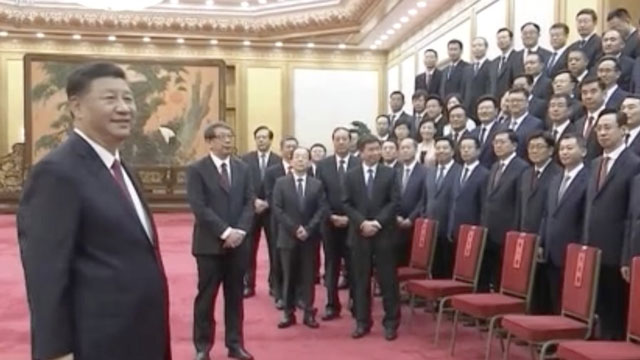
COMMENT | Ronald Kato | China presents us with a complex – if impossible question. How does a country so big, so diverse, and not exactly rich manage to get things done so efficiently, so quickly?
On July 1, today, China’s governing party, the Communist Party of China (CAPC) marks 100 years since its founding.
The party has governed China since 1949 and has presided the country’s transformation from a turbulent, poor land to the confident, bolder country that is the world’s second-largest economy today.
China’s political system is complex especially to outsiders. Thus, its achievements are many times called ‘miracles’, even ‘unbelievable’.
This framing suggests that China is where it is because it has been lucky. That there’s a myth about China’s progress.
But there’s no amount of luck that can last one long enough to end absolute poverty, be the global 5G leader, build their own international space station in a matter of years and most importantly, administer over a billion vaccine doses in under six months while averaging 20 million doses a day in the same week they send three astronauts into space.
Such ‘luck’, if it exists, is called competence.
And its roots are found in the CPC’s conviction that leaders must be able to deliver. In China, it’s meritocracy over everything else that will earn you membership into the CPC, and then an assignment to lead.
This explains why the CPC is much leaner compared to the population it governs. The party’s membership stands at 90 million people. China’s population is 1.4 billion.
CPC leaders and members are held to a much higher and tighter standard than everyone else. They are expected to work harder, sacrifice more.
Needless to mention that the journey before and after 1949 has been full of challenges.
But it takes a different level of competence to build six 1,500-room hospitals in a matter of days, a speedy kind of speed to detect and sequence a novel disease.
It involves a bizarre amount of efficiency to keep the electricity on, to ensure there are no water outages, crews pick garbage, keeps homes heated even as you put a province of over 60 million under lockdown.
An even greater level of mobilization to test entire cities for coronavirus within days.
Whether it is stopping killer diseases, building modern infrastructure or administering Covid-19 vaccines, Chinese state capacity to deliver public goods and services is extremely robust and resilient.
A confident and stellar outfit. While some countries initially laughed off, even criticized China’s virus measures as ‘draconian’, its 3,800 deaths pale in comparison to the 600,000 (and counting) fatalities recorded in the United States or the 530,000 lives lost in Brazil.
The pandemic will be the single most important vindicator of CPC rule over China for a long time.
Africa’s revolutionary parties love to tout their ‘good’ relations with the CPC. But while the circumstances aren’t exactly the same, MPLA (Angola), ANC (South Africa), NRM (Uganda) have done little to emulate the CPC’s work ethic.
Until about five years ago, in much of China’s poorer southwest and northwest regions, one could notice striking similarities with some African countries. Where authorities were extending paved roads, power lines, and building hospitals for the first time.
To be clear, many challenges that are synonymous with developing countries exist in China. Around 39% of its population lives in rural areas and not fully integrated into the national economy.
What sets Beijing apart though is the consistent, unrelenting work to overcome those challenges. To see that tea farmers in rural Zhejiang enjoy a decent level prosperity as folks employed in the services sector in Hangzhou or Wuhan.
There can be so many things to blame. Imperialists, Pigs, chiefs, even opposition terrorists but when the ball was in your court, did you kick it?
China’s leaders have done their homework and rarely faulted the family dog.
On Wednesday, the World Health Organization (WHO) declared China malaria-free.
Here is something more relatable. On Wednesday, the World Health Organization (WHO) declared China malaria-free. The country had maintained zero indigenous cases of the disease for four consecutive years – the threshold needed to declare victory over the disease.
At the time the CPC took power in 1949, China was posting an estimated 30 million cases and 300,000 deaths per year.
The disease remains endemic in Africa, responsible for several ten thousand deaths a year and contributing to high poverty levels.
The reason malaria is eliminated there and not here is governance.
It starts by wanting things to be better for your people. For them to pay less for healthcare, for schools to teach, for doctors to treat, to get to work faster. A state has to have empathy and compassion toward those it governs.
It is what motivates China’s leaders.
But what about democracy?
While China’s political system emphasizes freedom from hunger, and poverty, it refuses to see presidential elections as necessary to its brand of democracy. You can’t deliver ballot papers to the homeless or mock those starving by inviting them to register to vote.
After all ‘democracy’ hasn’t saved 600,000 people from due to Covid-19 or stopped children from stunting due to hunger and malnutrition in the world’s largest democracy, India.
China’s government enjoys greater legitimacy and popularity than any Western government with respect to their own citizens, according to a July 2020 survey by the Ash Center for Democratic Governance and Innovation at Harvard Kennedy School made titled Understanding CCP Resilience: Surveying Chinese Public Opinion Through Time.
The survey concluded that people’s satisfaction with CPC rule was at its highest since 2003 with the approval rating standing at 93.1%.
Unlike in the West where leaders often invade other countries to shore up their ratings, Chinese leaders build hospitals, expand social protection and treat diseases. After all, dead people do not enjoy democracy.
If labels are your thing, you can call the CPC authoritarian, dictatorial, utopian, communist, even democratic.
But it takes foresight, deliberate policymaking and careful planning to produce Huawei, Alibaba, Tencent to build the world’s longest High Speed Rail network in the world.
That African leaders quote Mao Zedong in their speeches but refuse to reflect on his vision for not just China but also the entire Global South is a big scandal.
It takes competent governance to be a major global trade, economic and political player.
China’s biggest win is perhaps its willingness and zeal to go after its own corrupt cadres and officials, over and more than anyone else.
Any parties that fail to stop corruption and indiscipline eventually fail to govern. There are no miracles in China. There are competent governors.
*******
Ronald Kato is a senior Ugandan at journalist at Africanews and a China International Press Communication Centre (CIPCC) fellow
 The Independent Uganda: You get the Truth we Pay the Price
The Independent Uganda: You get the Truth we Pay the Price




You lost me at “not exactly rich”!